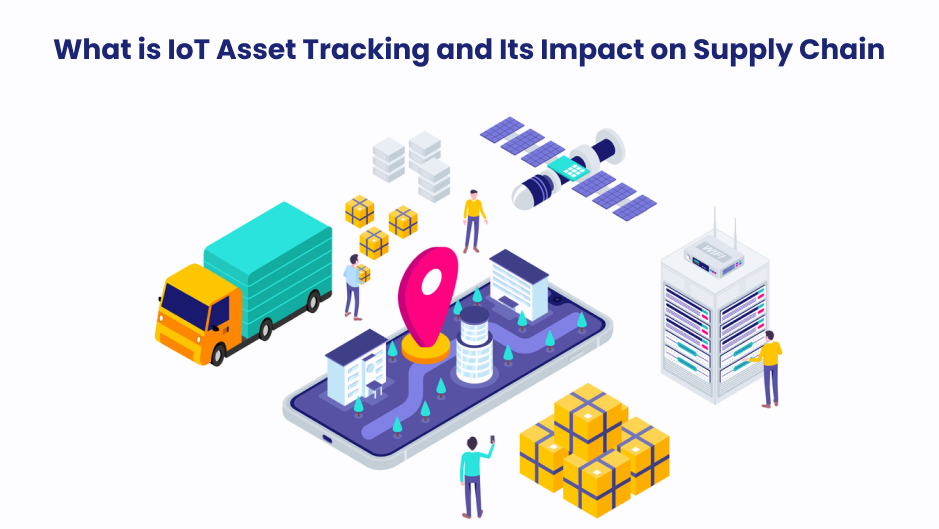What is IoT Asset Tracking and Its Impact on Logistics, Transportation
Introduction
The Internet of Things (IoT) has transformed many industries, including supply chain, cold chain, logistics, transportation, and fleet management. One of the most significant innovations in this space is IoT asset tracking, which allows businesses to monitor and manage their assets in real-time. This article will explore what IoT asset tracking is and its impact on various industries.

Harnessing the Power of IoT Asset Tracking
What is IoT Asset Tracking?
IoT asset tracking is the process of using IoT-enabled devices to monitor, locate, and manage assets, both physical and digital, in real-time. These devices, often referred to as IoT trackers, utilize GPS, Wi-Fi, Bluetooth, or other wireless technologies to transmit data about the asset’s location, condition, and other essential parameters. This data is then processed and analyzed by specialized software, providing businesses with valuable insights and facilitating better decision-making.
Impact of IoT Asset Tracking on Various Industries
Supply Chain
IoT asset tracking has revolutionized supply chain management by providing real-time visibility into the location and condition of assets throughout the entire process. This improved visibility allows businesses to optimize their operations, reduce costs, and minimize the risk of loss or theft. Furthermore, IoT asset tracking enables predictive maintenance, ensuring that assets are maintained in optimal condition, and reduces downtime due to unexpected equipment failures.
Cold Chain
In the cold chain industry, maintaining the proper temperature and humidity conditions is critical to ensuring the quality and safety of perishable goods. IoT asset tracking enables real-time monitoring of temperature-sensitive assets, alerting businesses to any deviations from the required conditions. This allows them to take immediate corrective action, minimizing product spoilage and waste. Additionally, IoT asset tracking can help businesses comply with regulatory requirements and provide auditable records of temperature data throughout the cold chain process.
Logistics
IoT asset tracking has significantly impacted logistics, streamlining operations, and improving overall efficiency. Real-time tracking enables businesses to monitor the status of shipments, anticipate delays, and optimize delivery routes. This results in reduced transportation costs, improved customer satisfaction, and a more agile logistics operation capable of adapting to changing market conditions. Furthermore, IoT asset tracking can help businesses better manage their warehouse operations by providing real-time data on inventory levels, location, and movement.
Transportation
In the transportation industry, IoT asset tracking has proven invaluable for optimizing fleet operations and ensuring the safety and security of assets. Real-time location and condition data enable businesses to monitor vehicle performance, detect potential issues, and schedule proactive maintenance. This leads to reduced operating costs, increased asset lifespan, and improved overall fleet efficiency. Moreover, IoT asset tracking can enhance safety and security by providing real-time alerts in case of unauthorized access, theft, or accidents.
Fleet Management
IoT asset tracking plays a critical role in fleet management by providing businesses with real-time data on vehicle location, performance, and driver behavior. This information allows fleet managers to optimize routes, reduce fuel consumption, and improve overall operational efficiency. Moreover, IoT asset tracking can help businesses monitor driver performance and safety, encouraging safer driving habits and reducing the risk of accidents. This leads to lower insurance costs, improved employee satisfaction, and a better company reputation.
Conclusion
IoT asset tracking has had a transformative effect on various industries, including supply chain, cold chain, logistics, transportation, and fleet management. By providing real-time visibility into the location and condition of assets, IoT asset tracking enables businesses to optimize their operations , reduce costs, and enhance overall efficiency. Furthermore, IoT asset tracking improves regulatory compliance, ensures the quality and safety of products, and strengthens the security of assets throughout their lifecycle.
As IoT technology continues to advance and become more accessible, businesses across these industries should consider adopting IoT asset tracking solutions to stay competitive in the market. By leveraging the power of IoT, companies can gain valuable insights, make data-driven decisions, and unlock new levels of productivity and growth. In the long run, IoT asset tracking will remain a vital tool for businesses looking to optimize their operations, enhance customer satisfaction, and drive success in an increasingly connected world.
